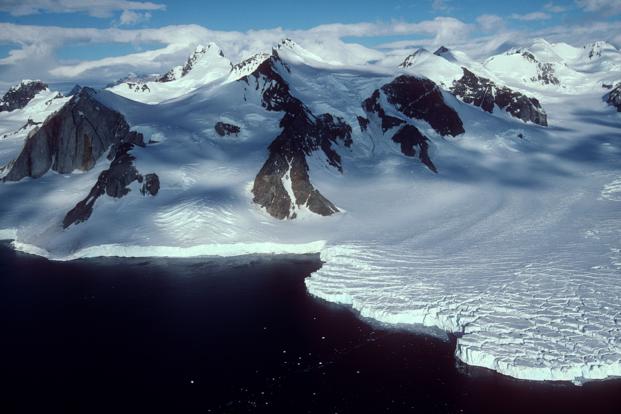-
Tips for becoming a good boxer - November 6, 2020
-
7 expert tips for making your hens night a memorable one - November 6, 2020
-
5 reasons to host your Christmas party on a cruise boat - November 6, 2020
-
What to do when you’re charged with a crime - November 6, 2020
-
Should you get one or multiple dogs? Here’s all you need to know - November 3, 2020
-
A Guide: How to Build Your Very Own Magic Mirror - February 14, 2019
-
Our Top Inspirational Baseball Stars - November 24, 2018
-
Five Tech Tools That Will Help You Turn Your Blog into a Business - November 24, 2018
-
How to Indulge on Vacation without Expanding Your Waist - November 9, 2018
-
5 Strategies for Businesses to Appeal to Today’s Increasingly Mobile-Crazed Customers - November 9, 2018
Burning All of the World’s Fossil Fuels Would Completely Melt the Antarctic
The researchers said burning world’s reserves of oil, gas and coal would eventually melt the entire Antarctic ice sheet causing oceans to rise 50 meters higher.
Advertisement
Lead author of the study, Ricarda Winkelmann, explains that once the Antarctica is gone, it causes other ice patches to melt more quickly, too. The researchers stated that to secure cities like Tokyo, Hong Kong, Shanghai, Calcutta, Hamburg or New York to be the future heritage, people need to avoid a tipping in East Antarctica.
United Nations has announced that the rise of the sea would not exceed three feet over the next century.
Fossil fuel companies defend their products as the most affordable energy option for developing countries seeking to pull billions of people out of poverty.
Although plenty of studies in the past have tried to predict what would happen if our climate increases 2, 5, or even 7 degrees Celsius, this is the first to model the effect on the Antarctic ice sheet given the worst case scenario – where us foolish humans burn through every last fossil fuel resource on the planet without restraint and with no regard for the consequences (sound familiar, baby boomers?). But the West Antarctic Ice Sheet, which contains enough ice to raise global sea levels by four feet, is now considered unstable.
Furthermore, Levermann says, “The West Antarctic ice sheet may already have tipped into a state of unstoppable ice loss, whether as a result of human activity or not”. Moreover, they consider phenomena like enhanced snowfall due to global warming that might offset some part of the ice loss.
That would only require releasing 6 to 8 percent of the remaining 10,000 billion tons of potential carbon emissions locked in the ground.
The Antarctic ice cap is the largest on Earth, but presently it is contributing just around 10% of the sea level rise being driven by climate change because despite warming, the continent temperatures are still largely below freezing.
Is Antarctica melting? Yes, and in fact, it is melting at a higher rate than other masses of ice around the world.
Advertisement
One of the team members behind this study, Carnegie’s Ken Caldeira, believes burning the planet’s remaining fossil fuel resources would be enough to melt almost all of Antarctica’s ice. Over several thousand years, total sea level rise from all sources could reach up to 60 meters (200 feet). Beyond this additional carbon release, the destabilization of ice basins in both West and East Antarctica results in a threshold increase in global sea level. However, Greenland and especially Antarctica with their huge ice volumes are expected to be the major contributors to long-term future sea-level rise.




























